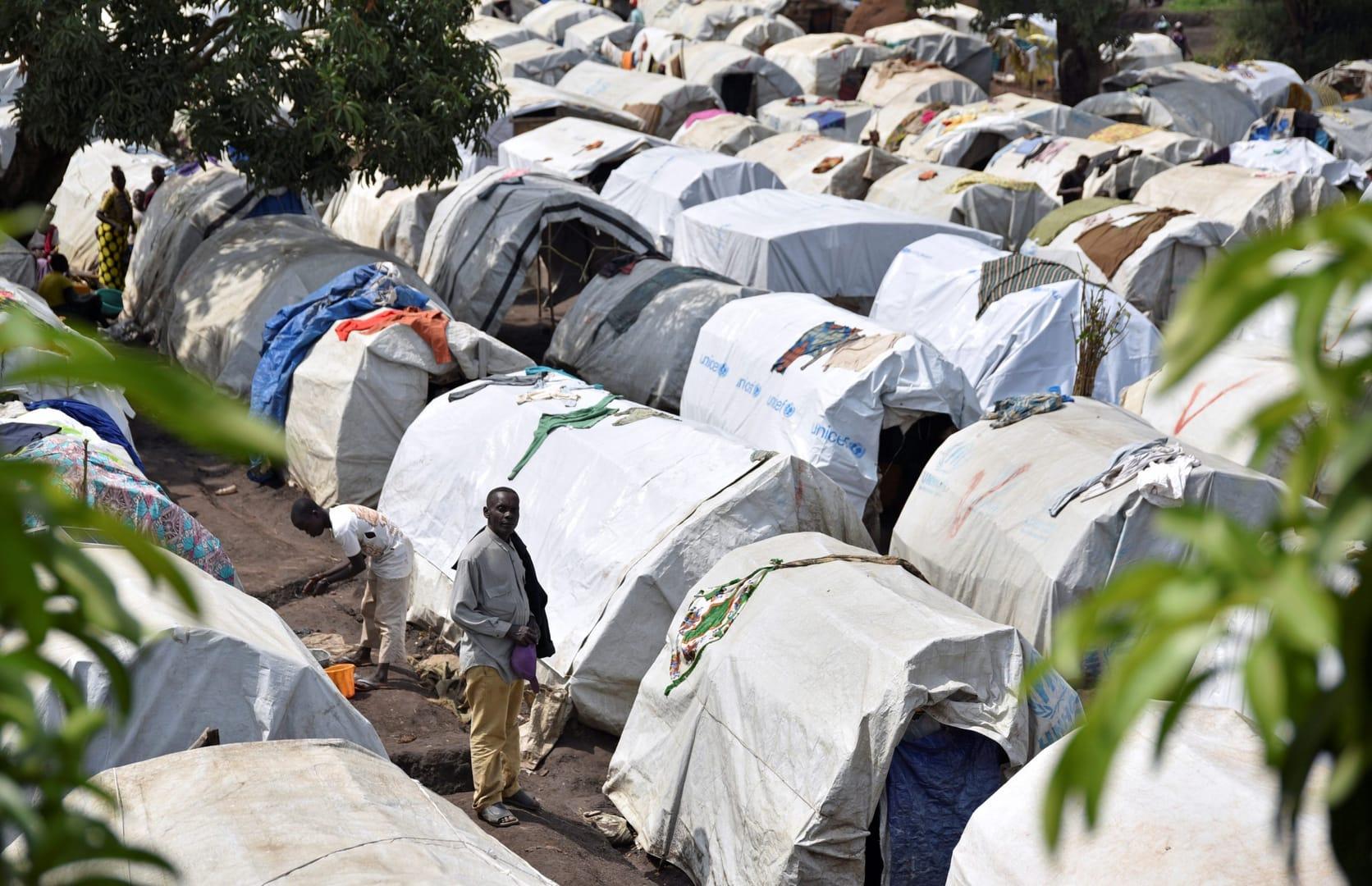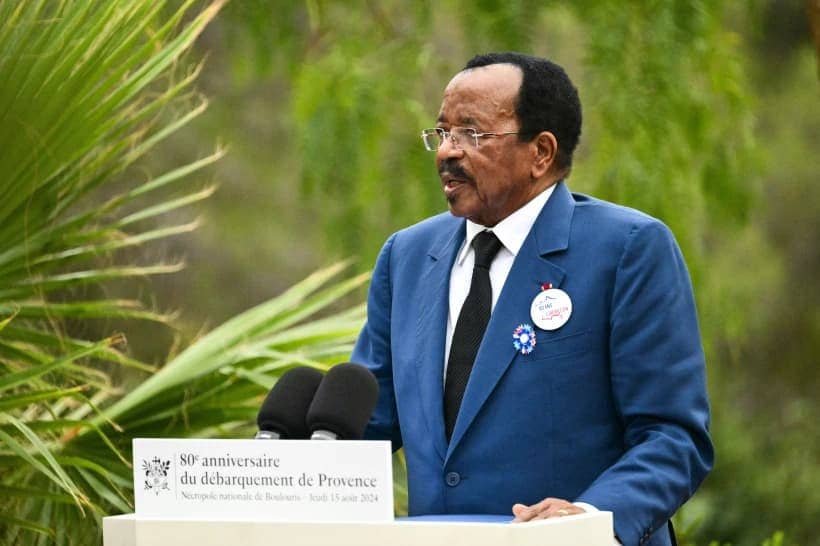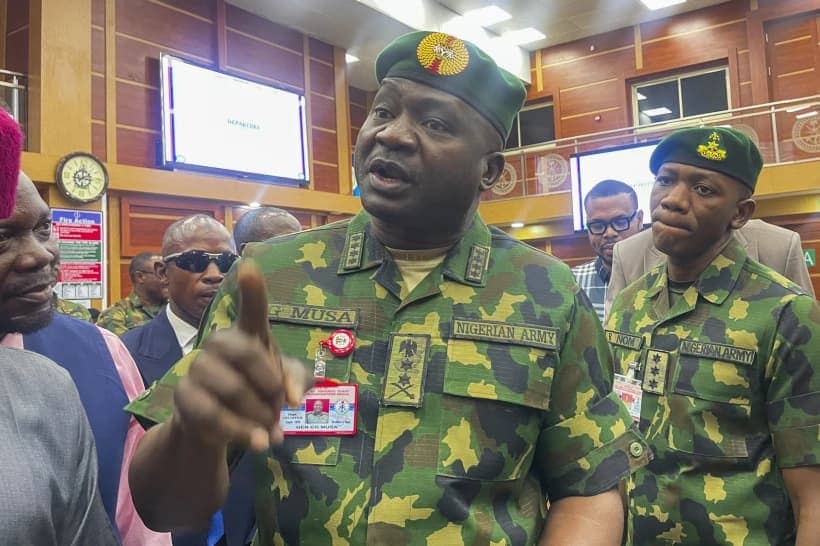YAOUNDÉ, Cameroon – COVID-19 is straining the humanitarian resources in the Democratic Republic of Congo, which is already suffering from outbreaks of cholera, measles and Ebola, as well as ongoing civil conflicts.
“Currently, in response to the COVID-19 pandemic and spread of the virus in the DRC’s capital of Kinshasa, [Catholic Relief Services] is implementing multiple emergency projects to address the pandemic’s impact on household and health care facility hygiene, food security, and livelihoods,” said Ghislain Mukana, the program manager for integrated health for Catholic Relief Services (CRS) in the country.
CRS is the international development arm of the U.S. bishops’ conference.
“Generally, it can be said that the COVID-19 pandemic and repeated Ebola outbreaks – as well as outbreaks of cholera and measles – have strained the capacity of the national health system and highlighted the need for continued international assistance supporting national responses and capacity,” he told Crux.
Following are excerpts of his conversation with Crux.
Crux: The World Health Organization (WHO) has raised fears over the possible spread of Ebola in the Equateur Province of the DRC neighboring Republic of Congo and even the DRC capital, Kinshasa. How serious would you describe this latest outbreak?
Mukana: Further expansion of the ongoing Ebola Virus Disease (EVD) epidemic in Equateur province remains possible. It is also important to note that the current epidemic has already reached three times as many health zones than the previous EVD epidemic in the same province in 2018. Over the past two weeks, cases of EVD have reportedly spread toward the north and east of the province.
The risk of the outbreak’s expansion toward Kinshasa would be increased if the city of Mbandaka, a transportation hub between by river and air transport to the capital, continues to register new cases. This risk would be especially considerable if cases escape diagnosis in Mbandaka and if cases are exchanged between the Mbandaka and neighboring Bikoro health zones, where new cases continue to appear. Potential risk of expansion to neighboring Republic of Congo also exists given that the neighboring health zone of Bomongo recorded new cases since 04 September.
How does an Ebola outbreak in the midst of COVID-19 further complicate things for the country?
The first constraint confronting the response to the latest EVD epidemic in the era of COVID-19 is one of reduced resources:
– Human resources. Specialists in the prevention and management of epidemics are currently shared across all the country’s provinces and are engaged in the national effort to control the COVID-19 pandemic;
– Financial and material resources are insufficient;
– Health facilities are under greater pressure.
The second constraint comes from the tendency of populations in areas affected by Ebola to relocate so as to avoid contracting the virus, which complicates efforts to contain the spread of both EVD and COVID-19.
Finally, both diseases have a definite impact on the productivity of communities, exposing them to challenges of food insecurity and malnutrition.
Added to Ebola and COVID-19, the country is also experiencing a measles outbreak that has so far killed 7000 people since 2019. Can you tell us more about this?
The DRC recently declared that the measles epidemic that has killed more than 7000 children was over. This announcement gives hope back to communities and encourages teams responding to the ongoing epidemics of COVID-19 and Ebola in the country.
In the face of all these, plus the conflict raging to the east of the country, what are the humanitarian needs?
The D.R. Congo faces a multitude of needs ranging from immediate response to humanitarian emergencies to long-term development support advancing the creation of sustainable and resilient livelihoods, improved water, sanitation and hygiene infrastructure, and improved health and nutrition outcomes, among other needs. The vast size of the D.R. Congo means that the profile of needs varies greatly depending on geography and specific historical, social, and political dynamics of a given province or territory.
Generally, it can be said that the COVID-19 pandemic and repeated Ebola outbreaks – as well as outbreaks of cholera and measles – have strained the capacity of the national health system and highlighted the need for continued international assistance supporting national responses and capacity.
CRS’s recent experience in delivering emergency and development programming amid the COVID-19 pandemic has highlighted the critical importance of empowering local partners and communities in line with CRS’ principle of subsidiarity: That people who are closer to the problem and have a better understanding of the issue are best placed to respond to their own needs.
What has CRS been doing to provide such assistance?
Recognizing the complex intersection of emergency and development needs in the DRC, CRS implements both short-term emergency responses and long-term development programs in the country in collaboration with more than 20 local partners.
Current projects comprise integrated, wide-ranging and gender-responsive and transformative health, nutrition, and agricultural interventions that respond to the country’s diverse challenges. CRS’s presence across the country ensures our ability to rapidly start-up projects and impact participants’ lives in remote areas.
In 2018 and 2019, CRS worked with Caritas partners to address Ebola outbreaks in Equateur and North Kivu, South Kivu and Ituri provinces. In response to the latter outbreak, CRS and Caritas Goma implemented a project delivering Risk Communication and Community Engagement (RCCE) activities in parishes in and around the city of Goma. The project built the capacity of 600 local, religious and opinion leaders to raise awareness of behaviors that reduce exposure and transmission in their respective constituencies.
Currently, in response to the COVID-19 pandemic and spread of the virus in the DRC’s capital of Kinshasa, CRS is implementing multiple emergency projects to address the pandemic’s impact on household and health care facility hygiene, food security, and livelihoods. With funding from the Center for Disaster Philanthropy, CRS is distributing hand washing kits to 8,000 households, providing direct food assistance to 2,000 households, and carrying out RCCE activities using radio and print materials. Additionally, CRS private funds have been allocated to provide mobile cash transfers to 1,560 highly vulnerable households in the capital, and to furnish critical hygiene and sanitation support to Catholic health care facilities.














